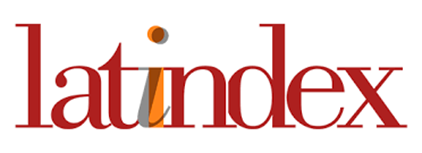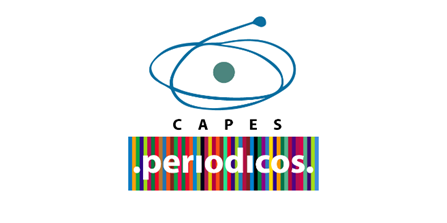DO NOT BELIEVE EVERYTHING YOU SEE: DEEPFAKE PORNOGRAPHY AND CIVIL LIABILITY IN THE BRAZILIAN LEGAL SYSTEM
DOI:
https://doi.org/10.14210/rdp.v18n2.p427-451Keywords:
Deepfake Pornography, Personality Rights, Civil LiabilityAbstract
Contextualization: The phenomenon of misinformation has been a concern on a global scale, especially when it comes to elections and threats to democracy. In 2018, in the United States, Deepfake began to gain prominence for being even more manipulative than Fake News, as the former uses images, videos, and audio modified by artificial intelligence, while the latter is produced by individuals and in written form. However, what is rarely discussed is that pornographic Deepfakes are the most widely circulated on the internet, with women being the victims whose images are used without consent. This initiates a debate about how to hold those responsible for the harm civilly accountable according to the norms of the Brazilian legal system.
Objectives: Identifying the problems, impacts, and concerns related to the practice of Deepfakes.
Methodology: Analysis of cases and international legislative instruments, along with an examination of relevant national legislation in the case of Deepfakes.
Results: As a result of the present research, self-regulation of platforms was proposed as a swift and effective solution in combating the spread of Deepfakes.
Downloads
References
ABBOUD, Georges; NERY JÚNIOR, Nelson; CAMPOS, Ricardo. Fake News e Regulação. 2. ed. São Paulo: Thomson Reuters, 2020.
ALIAGA, V. Henry Cavill é o James Bond perfeito em vídeo deepfake. IGN Brasil, 02 nov. 2021. Disponível em: https://br.ign.com/henry-cavill/94131/news/henry-cavill-james-bond-perfeito-video-deepfake. Acesso em 29 maio 2023
ARTIFICIAL Intelligence Coined at Dartmouth. Dartmouth College, Hanover. Disponível em: https://home.dartmouth.edu/about/artificial-intelligence-ai-coined-dartmouth. Acesso em: 29 maio 2023.
BARBOSA, Mafalda Miranda; BRAGA NETTO, Felipe; SILVA, Michael César; FALEIROS JÚNIOR, José Luiz de Moura. Direito Digital e Inteligência artificial: diálogos entre Brasil e Europa. Indaiatuba: Editora Foco, 2021.
BITTAR, Carlos Alberto. Os direitos da Personalidade. 6. ed., rev., aum. e mod. por Eduardo C. B. Bittar. São Paulo: Saraiva, 2015.
BREGA, Gabriel Ribeiro. A regulação de conteúdo nas redes sociais: uma breve análise comparativa entre o NetzDG e a solução brasileita. Revista Direito FGV. v. 19, publicado em 14/03/2023. Disponível em: https://bibliotecadigital.fgv.br/ojs/index.php/revdireitogv/article/view/89111. Acesso em: 30 maio 2023. DOI: https://doi.org/10.1590/2317-6172202305
COPELAND, B. J. Alan Turning and the beginning of AI. Britannica. Disponível em: https://www.britannica.com/technology/artificial-intelligence/Alan-Turing-and-the-beginning-of-AI. Acesso em: 29 maio 2023.
CRUZ, Francisco Brito; SILVEIRA, Hélio Freitas de Carvalho da; ABREU, Jacqueline de Souza; ANDRADE, Marcelo Santiago de Paduá; VIEIRA, Rafael Sonda; OLIVA, Thiago Dias. Direito Eleitoral na Era Digital. Belo Horizonte: Casa do Direito, 2018.
DEEPTRACE. The State of Deepfakes: Landscape, Threats, and Impact. Amsterdã: Deeptrace, 2019. Disponível em: https://sensity.ai/reports/. Acesso em: 14 maio 2023
DUFFY, Ryan. Pornographic “Deepfake Ecosystem” on Telegram Uncovered by Sensity. Tech Brew, 02 nov. 2020. Disponível em: https://www.emergingtechbrew.com/stories/2020/11/02/pornographic-deepfake-ecosystem-telegram-uncovered-sensity. Acesso em: 30 maio 2023.
ESTRUTURA orgânica do STF passa a contar com setor voltado a inteligência artificial. STF Notícias, Brasília, 27 dez. 2022. Disponível em: https://portal.stf.jus.br/noticias/verNoticiaDetalh e.asp?idConteudo=499690&ori=. Acesso em: 29 maio 2023.
EUROPEIA, Comissão. Código de Conduta para a luta contra os discursos ilegais de incitação ao ódio em linha. Disponível em: https://commission.europa.eu/document/551c44da-baae-4692-9e7d-52d20c04e0e2_pt. Acesso em: 09 maio 2023.
GONÇALVES, Carlos Roberto. Direito Civil Brasileiro, volume 1: parte geral. 16. ed. São Paulo: Saraiva Educação, 2018.
HOFFMANN-RIEM, Wolfgang. Teoria Geral do Direito Digital: transformação digital: desafios para o direito. 2. ed. Rio de Janeiro: Forense, 2022.
HOW TO DETECT A DEEPFAKE ONLINE: Image Forensics and Analysis of Deepfake Videos. Disponível em: https://sensity.ai/blog/deepfake-detection/how-to-detect-a-deepfake/. Acesso em: 08 mar. 2022.
LEAH, D. O que diz o casaco de Inteligência Artificial do Papa Francisco sobre o futuro da moda. CNN Portugal, Lisboa, 02 abr. 2023. Disponível em: https://cnnportugal.iol.pt/inteligencia-artificial/papa-francisco/o-que-diz-o-casaco-de-inteligencia-artificial-do-papa-francisco-sobre-o-futuro-da-moda/20230402/642412160cf2c84d7fcedfe5. Acesso em: 29 maio 2023.
LIMA, E. K. Sistema de reconhecimento facial da PF é “preocupante e ilícito”, afirmam especialistas. Olhar Digital, 13 jul. 2021. Disponível em: https://olhardigital.com.br/2021/07/13/seguranca/sistema-de-reconhecimento-facial-da-pf-e-preocupante-e-ilicito-afirmam-especialistas/. Acesso em: 30 maio 2023.
MARQUES, C. L.; MARTINI, S. R.; FINCO, M. (org). Diálogos entre direitos humanos, direito do consumidor, compliance e combate à corrupção. 1. ed. São Paulo: YK Editora, 2021.
MASSO, F. D.; ABRUSIO, J.; FLORÊNCIO FILHO, M. A. (coord.). Marco Civil da Internet: lei 12.965/2014. 2. ed. São Paulo: Editora Revista dos Tribunais Ltda., 2014.
MEDON, Filipe. O direito à imagem na era das deepfakes. Revista Brasileira de Direito Civil – RBDCivil, Belo Horizonte, v. 27, p. 251-277, jan./mar. 2021. DOI: https://doi.org/10.33242/rbdc.2021.01.011
MORAES, Alexandre de. Direito constitucional: atualizado até a EC 115, de 10.02.2022. 38. ed. Barueri: Editora Atlas, 2022.
MONTENEGRO, M. C. Inteligência Artificial: Trabalho judicial de 40 minutos pode ser feito em 5 segundos. Agência CNJ de Notícias, Brasília, 23 out. 2018. Disponível em: https://www.cnj.jus.br/inteligencia-artificial-trabalho-judicial-de-40-minutos-pode-ser-feito-em-5-segundos/. Acesso em: 29 maio 2023.
MUELLER, John Paul; MASSARON, Lucas. Aprendizado profundo para leigos. Rio de Janeiro: Alta Books, 2020.
PACETE, L. Bom uso de Deepfake amplia horizontes para o marketing, saúde e entretenimento. Forbes, 03 dez. 2021. Disponível em: https://forbes.com.br/forbes-tech/2021/12/bom-uso-da-deepfake-amplia-horizontes-para-o-marketing-e-os-negocios/. Acesso em 29 maio 2023
PINHEIRO, Patrícia Peck. Direito Digital. 7. ed. São Paulo: Saraiva Educação, 2021. E-book. Disponível em: https://integrada.minhabiblioteca.com.br/#/books/9786555598438/. Acesso em: 20 maio 2022.
PINTO, Felipe Chiarello de Souza; SOUZA JÚNIOR, Arthur Bezerra de. Limites da Liberdade de Expressão no Espaço Virtual: a questão Fake News. In: LÓSSIO, C. J. B.; NASCIMENTO, L.; TREMEL, R. (org.). Cibernética Jurídica: Estudos sobre Direito Digital. Campina Grande: EDUEPB, 2020. p. 142-154.
RAIS, Diogo; FALCÃO, Daniel; GIACCHETTA, André Zonaro; MENEGUETTI, Pamela. Direito Eleitoral Digital. 2. ed. São Paulo: Thomson Reuters Brasil, 2020.
RAIS, Diogo. Fake News: a conexão entre a desinformação e o direito. 2. ed. São Paulo: Thomson Reuters Brasil, 2020. p. 25-52.
SERVICE, European Parliamentary Research. Tackling deepfakes in European policy. In: PANEL FOR THE FUTURE OF SCIENCE AND TECHNOLOGY, 2021, Estrasburgo, Relatório […]. Estrasburgo: European Parliament, jul. 2021. p. 1-95. Disponível em: https://www.europarl.europa.eu/stoa/en/document/EPRS_STU(2021)690039. Acesso em 30 maio 2023.
SCHREIBER, Anderson. Direitos da Personalidade. 3. ed. São Paulo: Editora Atlas, 2014. E-book. Disponível em: https://integrada.minhabiblioteca.com.br/#/books/9788522493449/. Acesso em: 10 maio 2022.
SCHREIBER, Anderson. Novos paradigmas da responsabilidade civil: da erosão dos filtros da reparação à diluição dos danos. 5. ed. São Paulo: Editora Atlas, 2013.
SCHREIBER, Anderson; MORAES, Bruno Terra de; TEFFÉ, Chiara Spadaccini de. (coord.) Direito e Mídia: tecnologia e liberdade de expressão. 2. ed. Indaiatuba: Editora Foco, 2022.
SOARES, Flaviana Rampazzo. Levando Algoritmos a Sério. In: BARBOSA, Mafalda Miranda; BRAGA NETTO, Felipe; SILVA, Michael César; FALEIROS JÚNIOR, José Luiz de Moura. Direito Digital e Inteligência artificial: diálogos entre Brasil e Europa. Indaiatuba: Editora Foco, 2021.
TEIXEIRA, Tarcisio. Direito Digital e Processo Eletrônico. 5. ed. São Paulo: Saraiva Educação, 2020.
THE making of ‘The Noble Speech’. Direção e produção: The Womanity Foundation. Grand-Lancy: The Womanity Foundation, 2022. 1 vídeo. Disponível em: https://www.youtube.com/watch?v=f7DhJ9dhGmY. Acesso em 29 maio 2023
Downloads
Published
How to Cite
Issue
Section
License
Na qualidade de autor(es) da colaboração, original e inédita, sobre o qual me(nos) responsabilizo(amos) civil e penalmente pelo seu conteúdo, após ter lido as diretrizes para autores, concordado(amos) com o Regulamento da Revista Eletrônica Direito e Política e autorizo(amos) a publicação na rede mundial de computadores (Internet), permitindo, também, que sua linguagem possa ser reformulada, caso seja necessário, sem que me(nos) seja devido qualquer pagamento a título de direitos autorais, podendo qualquer interessado acessá-lo e/ou reproduzi-lo mediante download, desde que obedeçam os Direitos Autorais.

















